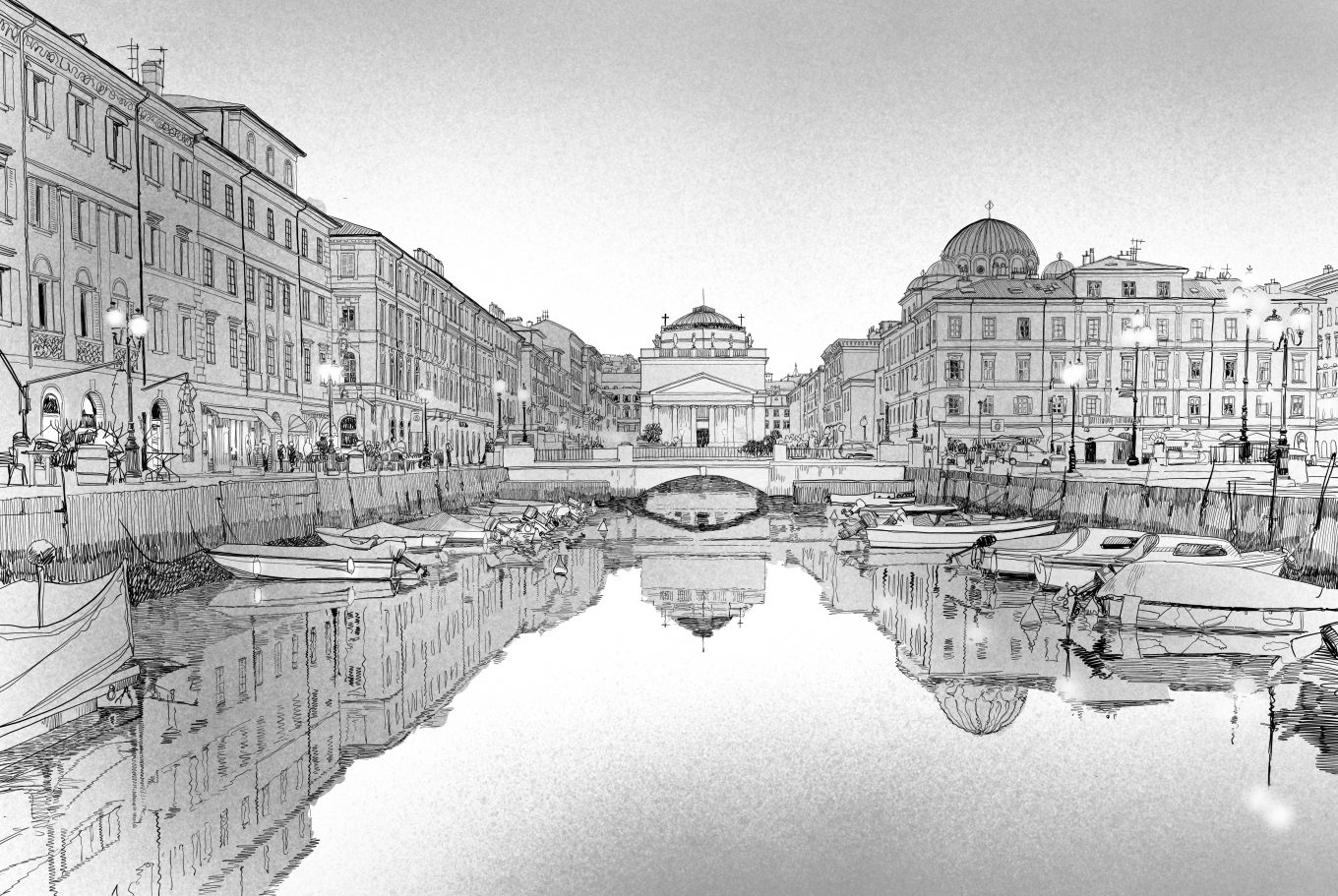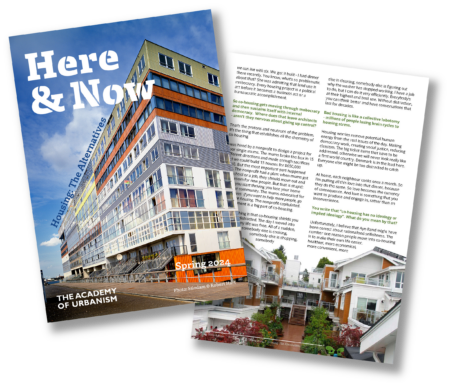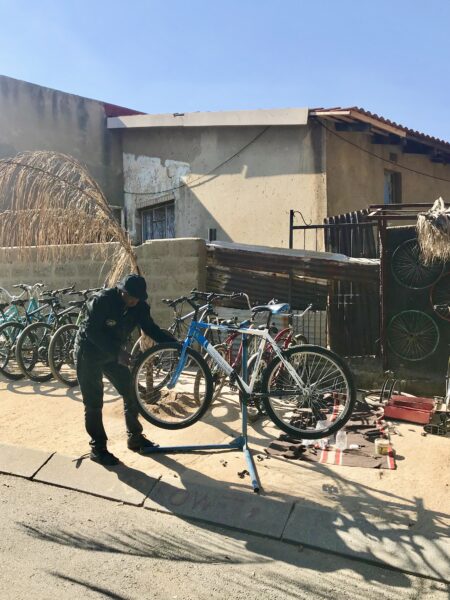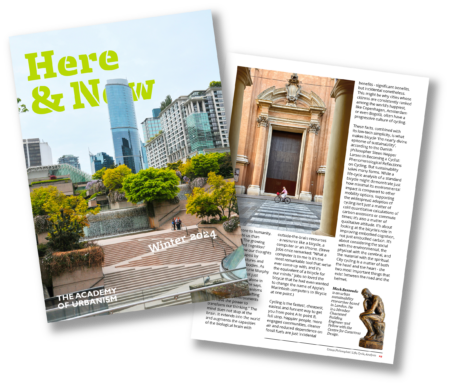The shortlisted cities for the current AoU Awards were Malaga, Mechelen and Trieste with the latter emerging as a narrow winner. AoU Director Victoria Whenray described what we learn from visits to the three cities as part of the assessment process.
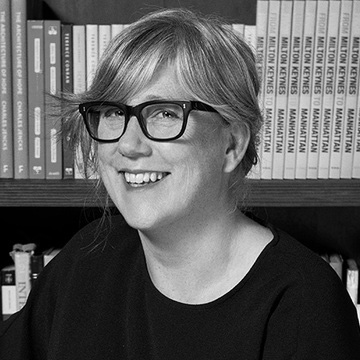 Visiting cities as part of the AoU has always been a huge privilege for me, and to be able to re-ignite the city visits in 2022 after the enforced break in travel we have all experienced, was an absolute joy. Being able to see, smell, hear the sounds of new cities in the company of those who have been determining their futures (in part at least) was like returning to an old friend.
Visiting cities as part of the AoU has always been a huge privilege for me, and to be able to re-ignite the city visits in 2022 after the enforced break in travel we have all experienced, was an absolute joy. Being able to see, smell, hear the sounds of new cities in the company of those who have been determining their futures (in part at least) was like returning to an old friend.
Host cities have always been incredibly generous with their knowledge, experiences and time, and this year visiting our shortlisted cities Malaga, Mechelen and Trieste was no exception. Fellow academicians and I, returned enthused, far more knowledgeable, full of big ideas and exhausted. Which is exactly as it should be.
All 3 cities have a rich and long heritage, Trieste and Malaga – both sea-port gateway cities – have a heritage dating back to ancient history, Malaga being first settled by the Phoenicians in 3000 BC, whilst Mechelen, located in the Flanders region and the relative youngster, can locate its roots back to the Gallo Roman period, with a brief period as Capital of the Lowlands in the 16th Century.
Revealing and celebrating their respective rich historic stories has informed many of the important urban moves for all three cities – in turn creating places and spaces with unique character and identity.
Malaga for example has undertaken a substantial transformation of the city centre – a considered and ambitious process of building restoration, pedestrianisation, and rehabilitated public spaces has dramatically changed the character and activity of the city centre. The quality of the transformation is sweeping and outstanding, revealing and enhancing the rich historic layers of the city, celebrating Phoenician ruins, Moorish citadels and the more recent Renaissance Malaga Cathedral. As part of this journey Malaga has expanded their cultural offer including attracting an outpost of the Pompidou Centre and, as Picasso’s birthplace, an expanded Picasso Museum and library. In so doing, Malaga has re-invented itself as a city of noteworthy history and culture.
The representatives we met – from the public and private sector as well as the community participants – were all highly engaged and passionate with enormous pride in their respective cities. The Academy believes that good governance is a core thread to the success of a city and we witnessed numerous example of improvements to struggling neighbourhoods.
1990’s Mechelen for example, was a city suffering from a negative reputation of child poverty and high crime rates. People felt unsafe in their local neighbourhoods, and those who could afford to, were moving out of the city. By 2015, Mechelen had the lowest rates of criminality and child poverty in Belgium and the city was rated as one of the most clean and friendly in Belgium. Key to this transformation was the election of Bart Somers as Mayor in 2002. He and his team introduced a three-point approach; improving security; including local engagement and visible policing: quality of life; eg investment in the public domain and living together. Eg initiatives to overcome segregation and polarisation such as a shift from segregated schools across the city to socially mixed schools.
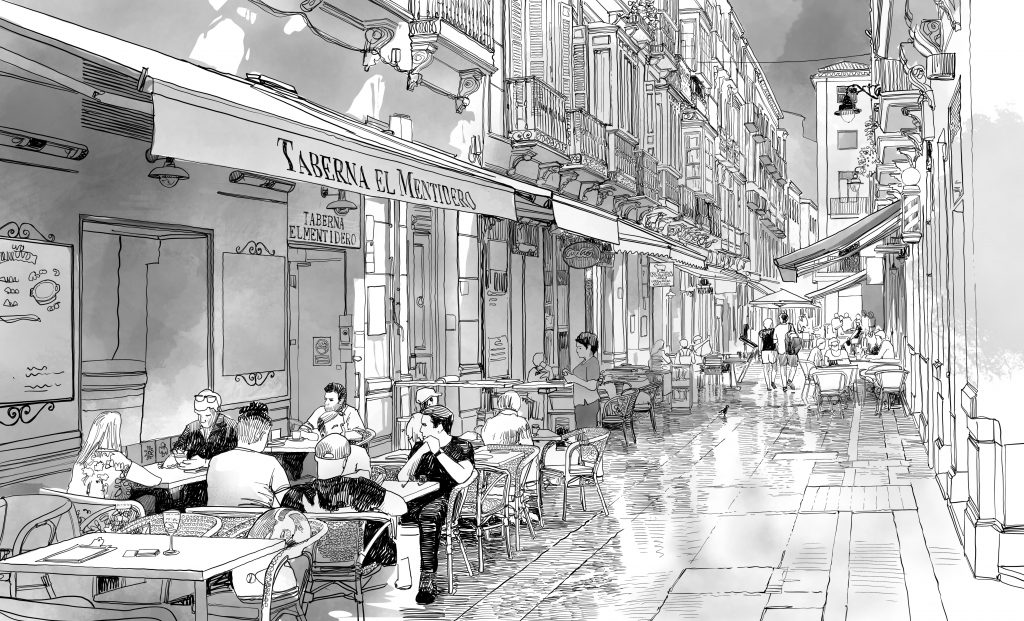
All 3 cities are understandably concentrating much of their energies on sustainable growth – economically and strategically, with a focus on climate change. Issues include mobility, transport (Malaga are trialling hydrogen powered buses for example) and sustainable economic growth.
Much of this relies on geography, and nestled between sea and protective escarpment, Trieste for example, is a city whose footprint has been defined by its landscape over centuries, which is also a limiting factor for contemporary growth.
Repurposing brown-field sites is key to regeneration and sustainable economic growth for Trieste, and over the past 15-20 years, the city has been carefully enhanced through a building conservation programme, with much attention currently on the port area of the city.
Trieste has continued as a major trading port, with substantial trading, shipping, and insurance sectors. Layered onto this is a keen ambition for an increased understanding of the sea environment through innovative research – The Marine Biodiversity Centre at ‘Miramare’ is supported by the World Wildlife Fund and Italian Department of the Environment. In addition to ongoing monitoring and research, Miramare manages the protected natural marine environment of the area ensuring a respectful stewardship of one it’s most important assets, with a commitment to widely share intelligence and knowledge.
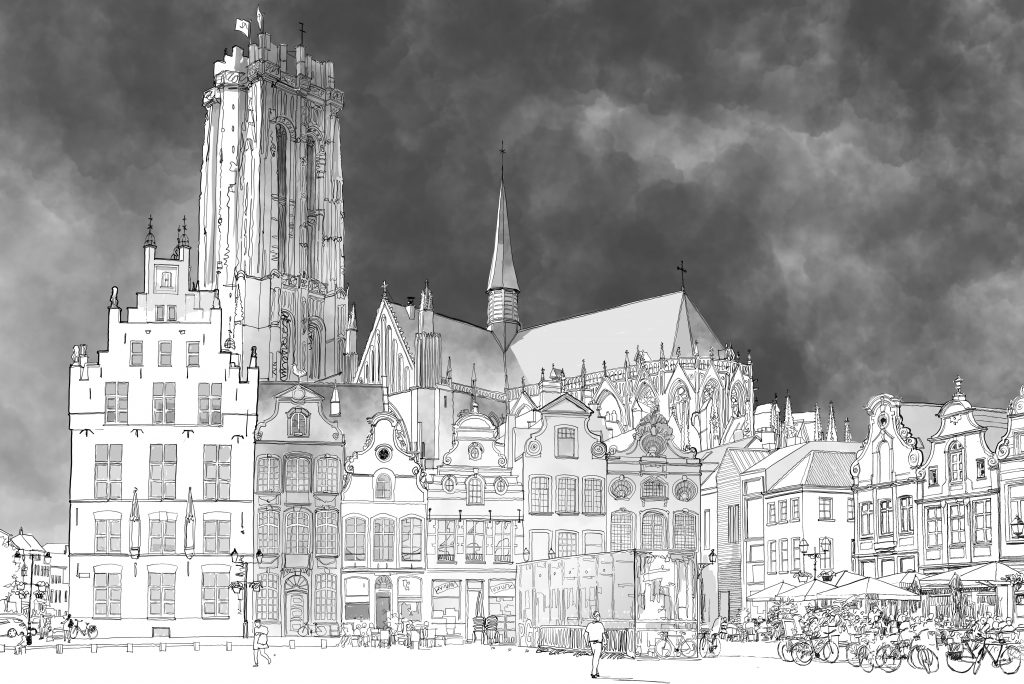
Tellingly all 3 cities have benefitted from strong leadership provided by long-standing Mayors. Mayor Bart Somers of Mechelen (recently appointed to Visiting cities as part of the AoU has always been a huge privilege for me, and to be able to re-ignite the city visits in 2022 after the enforced break in travel we have all experienced, was an absolute joy. Being able to see, smell, hear the sounds of new cities in the company of those who have been determining their futures (in part at least) was like returning to an old friend.
Host cities have always been incredibly generous with their knowledge, experiences and time, and this year visiting our shortlisted cities Malaga, Mechelen and Trieste was no exception. Fellow academicians and I, returned enthused, far more knowledgeable, full of big ideas and exhausted. Which is exactly as it should be.
All 3 cities have a rich and long heritage, Trieste and Malaga – both sea-port gateway cities – have a heritage dating back to ancient history, for example Malaga being first settled by the Phoenicians in 3000BC, whilst Mechelen located in the Flanders region and the relative youngster, can locate its roots back to the Gallo Roman period, with a brief period as Capital of the Lowlands in the 16th Century.
Revealing and celebrating their respective rich historic stories has informed many of the important urban moves for all three cities – in turn creating places and spaces with unique character and identity.
Malaga for example has undertaken a substantial transformation of the city centre – a considered and ambitious process of building restoration, pedestrianisation, and rehabilitated public spaces has dramatically changed the character and activity of the city centre. The quality of the transformation is sweeping and outstanding, revealing and enhancing the rich historic layers of the city, celebrating Phoenician ruins, Moorish Citadels and the more recent Renaissance Malaga Cathedral. As part of this journey Malaga has expanded their cultural offer including attracting the Pompidou and as Picasso’s birthplace an expanded Picasso Museum and library. In so doing, Malaga has re-invented itself as a city of noteworthy history and culture.
The representatives we met – from the public and private sector as well as the community participants – were all highly engaged and passionate with enormous pride in their respective cities. The Academy believes that good governance is a core thread to the success of a city and we witnessed numerous example of improvements to struggling neighbourhoods.
1990’s Mechelen for example, was a city suffering from a negative reputation of child poverty and high crime rates. People felt unsafe in their local neighbourhoods, and those who could afford to, were moving out of the city. By 2015, Mechelen had the lowest rates of criminality and child poverty in Belgium and the city was rated as one of the most clean and friendly in Belgium. Key to this transformation was the election of Bart Somers as Mayor in 2002. He and his team introduced a three-point approach; improving security; including local engagement and visible policing: quality of life; eg investment in the public domain and living together. Eg initiatives to overcome segregation and polarisation such as a shift from segregated schools across the city to socially mixed schools.
All 3 cities are understandably concentrating much of their energies on sustainable growth – economically and strategically, with a focus on climate change. Issues include mobility, transport (Malaga are trialling hydrogen powered buses for example) and sustainable economic growth.
Much of this relies on geography, and nestled between sea and protective escarpment, Trieste for example, is a city whose footprint has been defined by its landscape over centuries, which is also a limiting factor for contemporary growth.
Repurposing brown-field sites is key to regeneration and sustainable economic growth for Trieste, and over the past 15-20 years, the city has been carefully enhanced through a building conservation programme, with much attention currently on the port area of the city.
Trieste has continued as a major trading port, with substantial trading, shipping, and insurance sectors. Layered onto this is a keen ambition for an increased understanding of the sea environment through innovative research – The Marine Biodiversity Centre at ‘Miramare’ is supported by the World Wildlife Fund and Italian Department of the Environment. In addition to ongoing monitoring and research, Miramare manages the protected natural marine environment of the area ensuring a respectful stewardship of one it’s most important assets, with a commitment to widely share intelligence and knowledge.
Tellingly all 3 cities have benefitted from strong leadership provided by long-standing Mayors. Mayor Bart Somers of Mechelen (recently appointed Vice Minister President of the Flemish Government), Mayor Roberto Dipiazza, of Trieste, and Mayor Francisco de la Torre of Malaga.
If my maths is correct, the Mayors have served their cities a combined total of 50 years – and all have been instrumental in setting ambitions and delivering on their long term visions
All three cities demonstrated the breadth and depth of reinvention during the previous two decades, as well as the future ambitions already in the pipeline. The lesson here is that great cities aren’t built in a day. Cities are wonderful, evolving, social and cultural entities, which we experience at a point in time with a glimpse of how their next chapters are unfolding.
There are much more substantial reports in the AoU archive and I urge members to interact with this invaluable platform and seek these out.
Victoria Wenray is an architect and board director at Conran and Partners.


